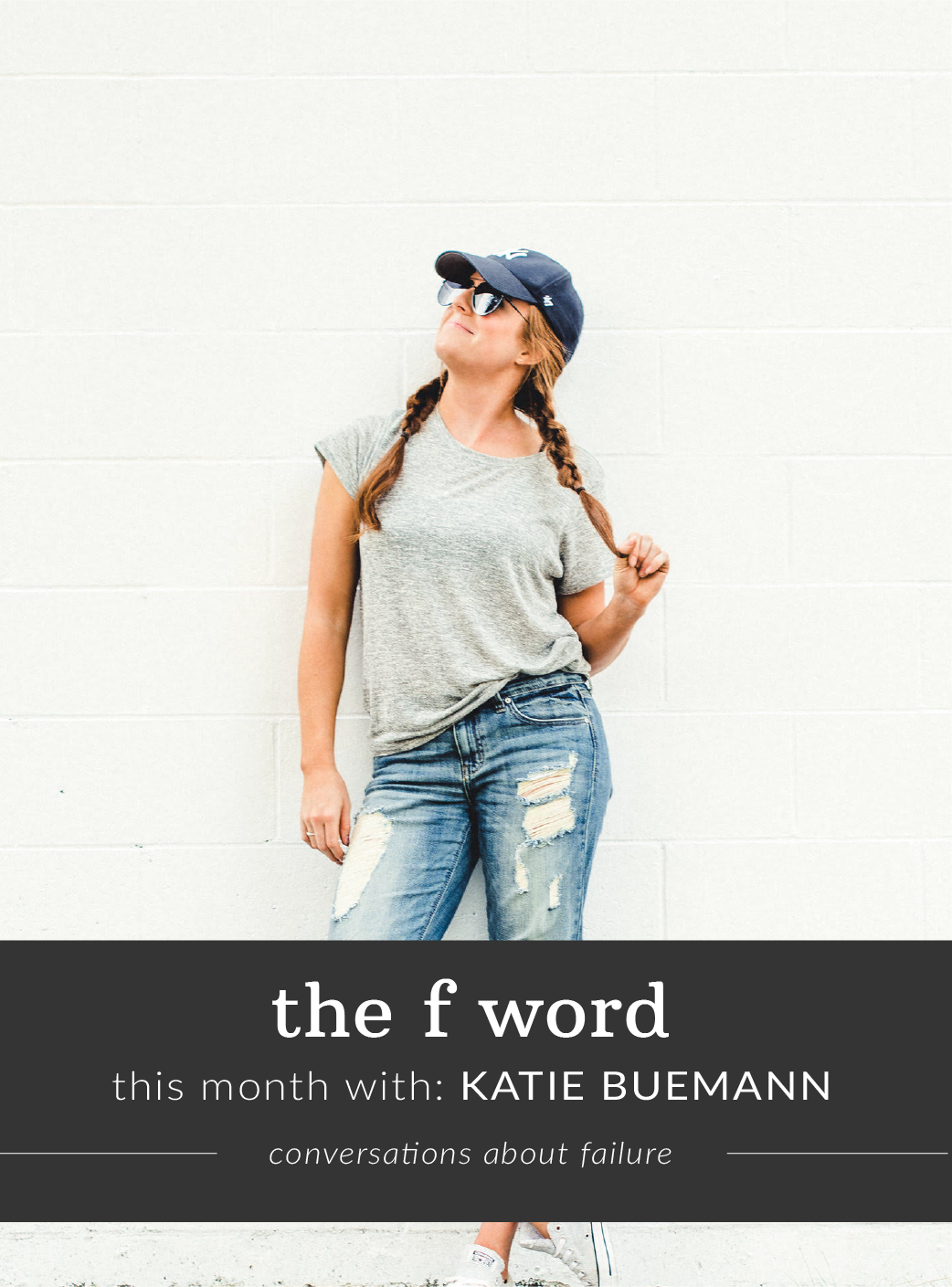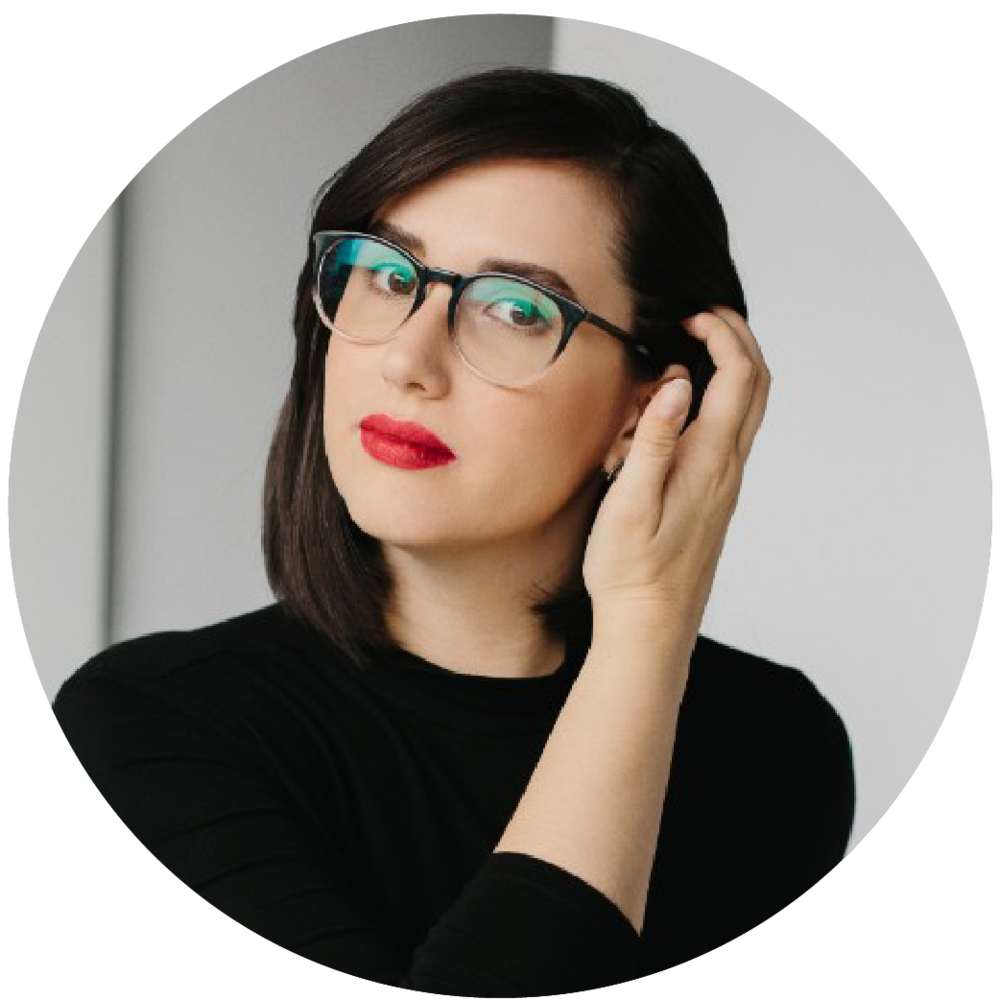The F-Word: Katie Buemann
Meet Katie, a wild child and the creative soul behind the Real Rebel Podcast. Katie’s many things–a dreamer, a creator, a trail-blazer and a total weirdo. And we mean that in the best way possible.
Katie opened up with us to share more about everything from her podcast’s origins to how her childhood influenced her outlook on failure (and life itself). Here’s my conversation with Katie.
What led you to creating your own podcast?
In my childhood, I was often told to stop talking and that people didn’t want to hear what I had to say. So I felt like I was quite insecure growing up when it came to speaking out loud. I always felt like a bit of an outcast. And so it’s funny now, because I’m doing a podcast. My mentor, Kylie Redhead has said to me ‘Now they can’t shut you up.’
I met Kylie when she led a program I took with her when I was having trouble figuring out what I wanted to do. I discovered there that I was meant to be helping people to feel inspired, helping people to feel free in their own lives. So it all just came to a point where it was the perfect time to do the podcast.
HOW DID YOU COME UP WITH THE PODCAST’S THEME?
The name of the podcast is the Real Rebel Podcast. It came from a place of rebellion, from being sick of being told what I should do. Also in the world of female entrepreneurship, there is way too much perfectionism going on. Everything looks perfect from an outsider’s perspective. I think that this ‘veil of perfectionism’ makes it very hard for people who are entering the world of entrepreneurship, especially women. It’s easy to think ‘Oh they look so perfect, those people over there doing that on Instagram and I could never measure up.’ And maybe they don’t even try because it seems like they’re never going to be good enough.
AND HOW ARE YOU TRYING TO BREAK DOWN THAT BARRIER IN YOUR OWN WORK?
The feeling of not being good enough is such a problem. A lot of people, if not everybody, especially women, we grapple with the feeling of not being good enough. I wanted to create something that was very honest real and playful and silly. Everybody’s welcome here. It’s about rebelling against expectation and just being yourself, whoever that is. And talking to women who have done that. It’s a rebellion against expectation and just, the point of it is to invite people to just be themselves and live a life that’s inspired as opposed to a life they feel they are supposed to be living.
CLEARLY, THIS IDEA OF ‘NOT ENOUGH’ IS VERY IMPORTANT TO YOU. WHERE DID THAT START?
Growing up, I was always such a weirdo. I have red hair, I have a gap in my teeth, and I was a skinny little string bean. Plus I had all these really big, big, ideas that I wanted to bring out. I always had some crazy idea and everyone else told me, ‘That’s nuts Katie,’ or ‘Oh no, there goes Katie again, she’s got some other crazy idea!’
And I had my group of friends that was four beautiful blonde girls so I always felt different. I felt very out of place. I felt like I had to be the ‘funny one’ because in my mind, I wasn’t the pretty one, I didn’t look like my Barbie dolls. I had a different way of thinking compared to my circle of friends, so I just felt very much like an outcast. And of course, when you grow up feeling that way, it doesn’t just disappear as you grow up. You carry it with you.
DO YOU FEEL LIKE HAVING THAT MINDSET HELD YOU BACK?
Yeah, It’s heavy to shift something like that, especially since you really start to believe it after a while. And the big thing that I like to talk about is the difference between the story that we’ve been told about ourselves vs. the stories that we tell ourselves. And I think that I told myself some very powerful stories about how I wasn’t good enough. That led to me being very indecisive about what I wanted to do.
I think that the reason why I wanted to do so many things is because I wasn’t honest about what I really wanted to bring into the world, because I didn’t think that I was capable or worthy of doing something so big. So it became too much of my narrative and it was something I needed to break free from.
HOW DID YOUR PARENTS INFLUENCE YOU, GROWING UP?
My dad always worked so hard. There were four kids in the family on one income and he worked so hard for us. He does mechanical work and so it was hard work, physically demanding. I always looking at him saw him as such a beautiful inventor. Like, he has a beautiful mind; he can take anything apart and put it back together. He has all these ideas to create. And to me it was always quite sad, because I haven’t gotten to see him fully express that.
I often think if he could just be left in a room to his own devices with unlimited resources, what would he create? And I feel that there’s a lot of people in the world who step into careers that they think that they should be in or because it’s good money and they live a life not ever fully expressing themselves. I think that so sad. So that’s another reason why the podcast exists. Because I want people to be able to wake up to who they really are and know that it’s ok to be that way, and you can kind of build something out of that.
HOW DID YOU LEARN TO DEFINE FAILURE?
I experienced a shit load of failure and I think that’s maybe why I’m resilient to it, because it became quite normal for me. My older sister was always better at school than I was so we brought our report cards home and hers was always mostly A’s maybe a couple of B's and mine was a couple of B's a lot of C’s. And so I felt like I never really measured up. In the extended family I definitely felt like–and maybe this is just my vision of it–they very much preferred my older sister because she was good at school. She was very polite, more respectable, and she was the first child. As the middle child, I always felt like a total screwball. I wasn’t good at school, and never said the right thing, so I felt like a failure my whole childhood!
AND HOW WOULD YOU DEFINE FAILURE TODAY?
I think like the surface definition is that failure is when you try to put something out there or you try to do something and it’s not successful. Maybe you try to put a business out there, or something even as small as like you try to bake a cake and you put it in the oven and it comes out like totally flat or something. Basically, you don’t have the desired or expected result when you do something.
But to me, failure is progress. Because if you are failing, it means you’re trying something. So even if it doesn’t work out then you know next time not to do it that way; maybe next time it will be better.
WHAT DOES FAILURE FEEL LIKE?
I think failure feels shit really, to be honest! It’s a terrible, terrible feeling. It feels heavy; it feels sad. It feels like your self-worth takes a hit. I also think though, in this day and age, failure is inevitable. You have to fail. But we need to acknowledge more that when you do fail, it feels just absolutely terrible.
WHERE DO YOU FIND YOUR MOTIVATION TO KEEP TRYING, IN SPITE OF FAILURES?
It all starts with death, actually. Because I am very aware that I have one life and I might as well go for it all the way. That probably means a lot of failure. I think for me the fear of being on my deathbed and having a ton of regret about the things I didn’t do is much greater that the fear of failing.
And so for me first and foremost, my drive to be fully realized in this lifetime and be fully expressed is way stronger than my fear of failure. Failure is impermanent, right? Like I’m just very aware of the fact that I am human and I will fail lots, and lots, and lots, over and over again... but what am I going to do, like, crawl in a hole after I fail? Because where does that get me? I want to always be moving forward no matter what and that means stepping out there and be willing to get bruised up a bit in the process.
Stay tuned next month, when we’ll get into some gritty real talk with Jess Robson, freelance writer extraordinaire.


